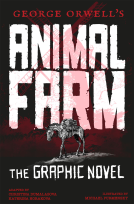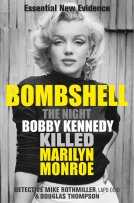
Questions of Poetics
Language Writing and Consequences
by Barrett Watten
This title was previously available on NetGalley and is now archived.
Send NetGalley books directly to your Kindle or Kindle app
1
To read on a Kindle or Kindle app, please add kindle@netgalley.com as an approved email address to receive files in your Amazon account. Click here for step-by-step instructions.
2
Also find your Kindle email address within your Amazon account, and enter it here.
Pub Date Jul 01 2016 | Archive Date Jul 29 2016
University of Iowa Press | Contemporary North American Poetry Series
Description
Each chapter is a theoretical inquiry into an aspect of poetics in an expanded sense—from the relation of experimental poetry to cultural logics of liberation and political economy, to questions of community and the politics of the avant-garde, to the cultural contexts where it is produced and intervenes. Each serves as a kind of thought experiment that theorizes and assesses the consequences of Language writing in expanded fields of meaning that include history, political theory, art history, and narrative theory. While all are grounded in a series of baseline questions of poetics, they also polemically address the currently turbulent debates on the politics of the avant-garde, especially Language writing, among emerging communities of poets.
In manifold ways, Watten masterfully demonstrates the aesthetic and political aims of Language writing, its influence on emerging literary schools, and its present aesthetic, critical, and political horizons. Questions of Poetics will be a major point of reference in continuing debates on poetry and literary history, a critical reexamination for already familiar readers and a clearly presented introduction for new ones.
Advance Praise
“Questions of Poetics is full-on Watten, a book with sharp edges, relentless intelligence, and an unwavering conviction that the arts have serious work to do.”—Peter Nicholls, author, George Oppen and the Fate of Modernism
“Questions of Poetics represents a major statement by one of the highest profile poet-critics of the day. Its arguments concerning genre, form, particularity, and negativity represent a solid, easily grasped, portable way of thinking about the ongoingness of the avant-garde, its continual diversification and reinvention. Moreover, Watten offers a persuasive reappraisal of Language writing and its place in American literary history.”—Brian Reed, author, Nobody’s Business: Twenty-First Century Avant-Garde Poetics
Available Editions
| EDITION | Paperback |
| ISBN | 9781609384302 |
| PRICE | $55.00 (USD) |
Links
Average rating from 5 members
Featured Reviews
 Earl M, Reviewer
Earl M, Reviewer
Questions of Poetics by Barrett Watten is an excellent look at Language writing both historically and theoretically. The presentation is both microscopic (specific incidents) and macroscopic (movements both past and future) in nature which should allow anyone with an interest in poetics an avenue into his argument.
For me, the immediate takeaway on first reading is the situating of the origins of Language writing and its development. This is also the aspect of Watten's poetics that led to the "debate" with Amiri Baraka in 2000. Perhaps an important point to always remember when assessing a broad theoretical concept derived largely from a person's own experiences is that it will be based on that particular perception of events, and thus a specific type of response. It certainly does not invalidate the ideas but rather cues the reader to seek other ideas that might have been formed from a different response to the same events.
If you're familiar with Watten you will already be familiar with many of his ideas on particularity, negativity and formal agency. I found of great interest the use of these ideas, which he has previously used in elaborating on Language writing, applied to the idea of various avant-garde movements (I think I prefer, in this context, to use avant-garde moments). I make no claims of fully grasping all of the details or nuances and look forward to re-visiting this book many times.
This will certainly be of interest to scholars and academics interested in poetics, avant-garde and Language writing. I think this will also find favorable reception among those who enjoy the historical and theoretical aspects of the literature they might read largely for enjoyment. This might be a bit detailed for a casual reader of literary theory but is written clearly and if one wanted to learn these ideas this would be a wonderful book for study.
Reviewed from an ARC made available by the publisher via NetGalley.
This is not an easy book, and I don't think I'm the intended audience as it is very academic. But I also think there's no harm in stretching yourself now and again and if you really like poetry, you may get something from this. If you aren't up to date on the current theoretical narrative around poetry, you may get a bit lost - as I frequently did - but if you persevere there is much to learn here. I will need to reread but that isn't a total chore as there is good writing in this. It's just that the language and jargon is very obscure for a general non-academic reader.
Recommended if you are studying literature or poetry but not if you just read an occasional poem.
I was given a copy of this book by Netgalley in return for an honest review.
Readers who liked this book also liked:
Jakub Politzer (Illustrator), Christina Dumalasova (adapter), Katerina Horakova (adapter)
Comics, Graphic Novels, Manga, General Fiction (Adult)









